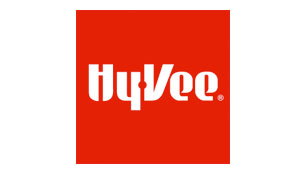5 things to know about planning a business conference

What does it take to put on a successful business conference? If you ask Anne Drannen, she’ll tell you it takes up to 575 pounds of meat, 1,000 salads and 400 hotel rooms. Drannen ought to know; she’s Orchestrate Hospitality’s event sales manager for hotels. However, food and lodging aren’t the only things that need to be mapped out.
A business conference offers attendees a few days of networking and the chance to learn something new, but it requires long hours of planning for the employee tasked with putting it together.
The Business Record sat down with three area event planners to get their tips and advice on how to plan a business conference from choosing the correct venue to staying on budget.
1. Pick a venue that will meet all of your needs
When choosing a location, look for spots close to the interstate, airports and hotels, said Carrie Jackson, director of convention services for the Iowa Events Center.
Also consider amenities beyond meeting spaces. “Look for customized menu options, technology capabilities and an experienced and dedicated staff committed to making your event a success,” she said.
Christie Shull-Wendel, director of event planning at the Des Moines Marriott Downtown, said event planners should keep the attendees’ overall experience in mind. “Look for outlets to service people when they’re not in meetings,” she said, adding nearby restaurants, bars and coffeehouses can make a big difference.
2. Plan ahead
The earlier you can start planning the better, Orchestrate’s Drannen said. “For new groups, we spend more time with the planner to make sure we understand exactly what they need and expect,” she said. “This may include two or three proposal meetings, a contract meeting and several advance meetings with the planner and staff working the event.”
Jackson added that the planning period is especially important for larger conventions and first-time planners. She said she’s worked with some groups who have planned one to two years out in order to get the dates and meeting space that they need, but she has put together events with other groups in only one to two months.
Another important planning tip is having an accurate head count. Hotel and event center staffs are able and willing to accommodate last-minute sign-ups, but it’s best for planners to know well before the conference begins how many chairs and meals will be needed.
3. Be flexible with your date
Be aware going in, that the date you want may not be available. September and October are generally busier months than others, while Tuesdays and Wednesdays are busier days of the weeks, said Shull-Wendel. “Being flexible on the date is a good thing.”
If it’s an annual conference, booking multiple years at once can better guarantee the desired date as well as a better rate.
4. Communicate
Professional event planners want the conference to be a success. So the more you can communicate your needs and expectations, the better it can be. “We want as much information as possible,” said Shull-Wendel. “Lots of times, people wonder why they should provide certain information, but without it, we can’t properly prepare.”
It’s important to talk with the event facility often and whenever changes or conflicts arise.
“We are here to partner with you to help make your event a success,” Jackson said. “Keeping the lines of communication open with the facility you choose is key.”
5. Don’t forget the details
A lot more goes into an event than just choosing a location and finding the right speakers. Planning a menu, selecting decorations and finding someone who can properly work the sound system are all necessary, although sometimes overlooked, details that can set events apart.
“We have relationships with local businesses that help with shuttle and/or limo needs, florists, photographers, wineries, dry cleaners, tailors, translators, the list goes on,” Drannen said.
“Be open-minded, and don’t let your event get into a rut,” said Shull-Wendel, adding that picking a theme that’s present throughout the conference can go a long way. “We like to get creative,” she said.











